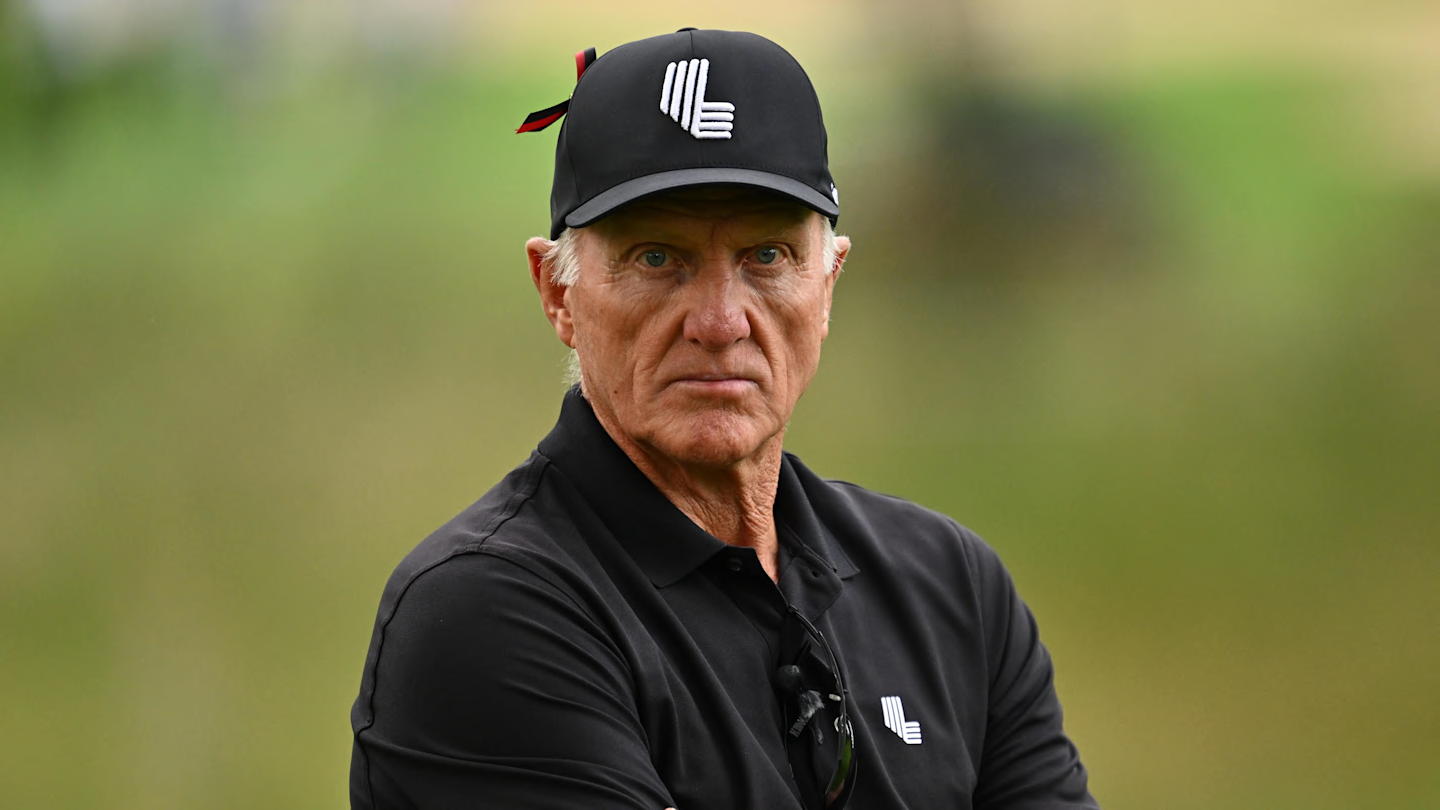In his first interview since leaving LIV Golf, Greg Norman reflected on the ups and downs of his tenure at the upstart circuit.
Norman, 70, was LIV’s CEO when the tour launched in 2022 and held that position until the beginning of this year, when Scott O’Neil assumed the role. Norman, though, stayed involved with the league through the remainder of his contract, which expired at the end of the 2025 season.
Speaking to Australian Golf Digest, the Aussie believes he accomplished his mission with the Saudi-backed circuit.
Sign Up Now. SI Golf Newsletters. Sports Illustrated’s Free Golf Newsletters. dark
“It was just one of those things where you had to stay focused on what purpose you were going after and execute on that purpose,” Norman said. “I think, from my perspective, I did that. I knew there were going to be a lot of headwinds. I didn’t anticipate the magnitude of those headwinds because… as time went by, those headwinds were created by misperceptions. (But) once the [PGA Tour’s] Strategic Sports Group (SSG) came in and once the other private equity money started rolling in, that was the catalyst for everybody to calm down a little bit, in my opinion. They started to see that what LIV did—bring private equity into the game of golf for the first time in 53 years—was a positive.”
As a result, the PGA Tour inflated its purses and cut field sizes for its signature events, giving its top players an opportunity to earn more money. Norman sees that as a victory.
“When you look back on the past 12 months, there’s been a realization that all those investment dollars have done great things for the institutions as well as the players, in all parts of the world,” he said. “Even with the PGA Tour [boosting its prize money with elevated events], I was quietly happy when I saw that, because the players benefited from it.
“Are they going to recognise LIV for doing that? No, but I do know that was a significant uptick for them. For them to be able to play for more money, even play in less competitive fields—they reduced the size of the fields—I just said, ‘Well, there you go.’ The adoption, to some degree, of what we implemented has been accepted.”
Although Norman, a two-time British Open champion, is pleased with his time with LIV, his three years there weren’t easy.
“I’ll be honest with you, it was hard,” Norman said. “It was very draining on me. I was working 100-hour weeks. I’m not going to say all the abuse was anything [of consequence], but what hurt me the most was the lack of understanding of why people would judge me and give the abuse they did. That was the thing that bothered me the most, because I’m the type of guy who will happily sit down and talk about things. And if I’m wrong, I’ll admit I’m wrong. But don’t judge me. Don’t judge what LIV was truly all about.”
Norman is now focusing on his golf course design business and being part of the organizing committee for the 2032 Olympic Games in Brisbane.
And with LIV in his rearview, Norman has no regrets.
“I’d do it a little differently,” he said, “but, yes, I’d do it again in a heartbeat. Like anything, you look back at losing a golf tournament and ask yourself, Why did you lose that golf tournament? Did I hit a bad 5-iron? Or did I not concentrate? So, you sit back and you analyze it, and of course, you would do that. And, like any CEO, you have to learn by your successes just as much as by your failures. So, yes, absolutely I’d do it again.”
More on Sports Illustrated







